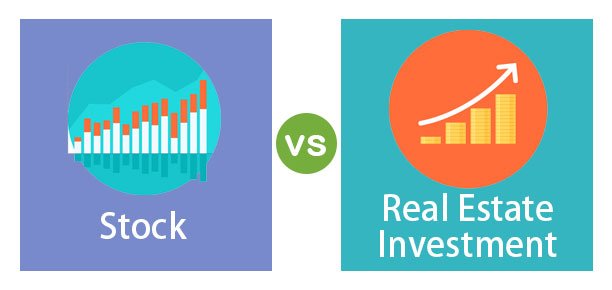Introduction When it comes to investing, real estate and the stock market are two of the most popular options. Both offer unique opportunities and potential for growth, but they also come with their own set of risks and rewards. As we move through 2024, many investors are weighing the benefits of real estate versus the stock market. This article explores the pros and cons of each investment type to help you decide which might be the better choice for you this year.
Real Estate Investment: The Pros and Cons
Pros:
- Tangible Asset
- Real estate is a physical asset you can see and touch. This tangibility can provide a sense of security and stability, making it an attractive option for many investors.
- Steady Income Stream
- Rental properties can generate a consistent income stream through monthly rent payments. This can provide a reliable source of cash flow, especially if you own multiple properties or invest in commercial real estate.
- Appreciation Potential
- Real estate has the potential to appreciate over time. As property values increase, so does the value of your investment. This long-term growth potential can be particularly appealing.
- Tax Benefits
- Real estate investments offer various tax advantages, including deductions for mortgage interest, property taxes, and depreciation. These benefits can enhance your overall return on investment.
Cons:
- High Initial Costs
- Investing in real estate typically requires a significant initial investment, including down payments, closing costs, and property maintenance expenses. This can be a barrier for many potential investors.
- Market Volatility
- While real estate is often seen as a stable investment, property values can fluctuate due to economic conditions, interest rates, and market trends. This volatility can impact your investment returns.
- Management and Maintenance
- Owning rental properties comes with the responsibility of managing and maintaining the property. This can be time-consuming and may require hiring property management services, which can reduce your overall profitability.
- Liquidity Issues
- Real estate is less liquid compared to stocks. Selling a property can take time and may involve additional costs, making it harder to quickly access your investment capital.
- Stock Market Investment: The Pros and Cons
- Pros:
- Liquidity
- Stocks are highly liquid investments. You can buy and sell shares quickly and easily through brokerage accounts, allowing for more flexibility and access to your capital.
- Diversification
- The stock market offers a wide range of investment options, including individual stocks, mutual funds, and ETFs. This allows for easy diversification across various sectors and industries, reducing risk.
- Potential for High Returns
- Historically, the stock market has provided higher returns compared to other investment options. With careful selection and strategy, investors can benefit from significant capital gains.
- Lower Initial Investment
- Investing in stocks typically requires a lower initial capital compared to real estate. Many brokerage accounts have minimal or no minimum investment requirements, making it accessible for a wider range of investors.
- LSI Keywords: stock market investment, investment diversification, high returns
- Cons:
- Market Volatility
- The stock market can be highly volatile, with fluctuations in stock prices driven by economic conditions, company performance, and global events. This volatility can lead to significant gains or losses in a short period.
- Emotional Investing
- The fast-paced nature of the stock market can lead to emotional investing, where decisions are driven by short-term market movements rather than long-term strategy. This can result in poor investment choices.
- Less Tangibility
- Unlike real estate, stocks represent ownership in a company rather than a physical asset. This lack of tangibility can be a drawback for some investors who prefer more concrete investments.
- Potential for Fraud
- The stock market can be susceptible to fraud and market manipulation. While regulations are in place to protect investors, there is always a risk of encountering fraudulent schemes or unethical practices.
- LSI Keywords: stock market risks, investment volatility, stock fraud
- Which Investment Is Better in 2024? The choice between real estate and the stock market depends on your individual financial goals, risk tolerance, and investment strategy. If you seek tangible assets with steady income and potential tax benefits, real estate may be the better choice. However, if you prefer liquidity, diversification, and the potential for higher returns, the stock market could be more suitable.
- Consider your financial situation, investment horizon, and personal preferences when making your decision. Consulting with a financial advisor can also provide valuable insights and help you develop a tailored investment strategy for 2024 and beyond.
- Conclusion Both real estate and the stock market offer unique opportunities and challenges. By understanding the pros and cons of each investment type, you can make an informed decision that aligns with your financial goals and risk tolerance. Whether you choose to invest in property or stocks, staying informed and adapting your strategy will be key to achieving long-term success.
